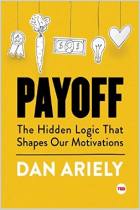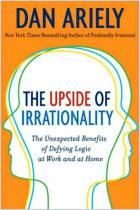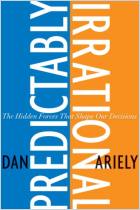Dan Ariely admits he’s a liar and a cheat, just like everybody else. The author and social scientist humbly uses his own stories – along with plenty of research – to illustrate factors that motivate cheating and lying. Citing fairly simple experiments, Ariely shows how one little lie leads to another and another. For example, he once skipped a long airport line by exaggerating a medical condition to obtain a wheelchair. He fell so hard for his own lie that he became indignant about the airport’s poor accommodations for his ailment. Ariely is a precise writer and an excellent storyteller. Despite some redundancies, getAbstract recommends this book to liars, to cheaters, to the managers who put up with them and to you, the only honest person on Earth.
Dishonesty
Society hasn’t yet figured out how to eliminate lying and cheating – whether that means misinforming the government about tax obligations or padding an expense report. The 2001 Enron meltdown is only one example of contemporary corporate scandals that raise questions about the roots and practice of dishonesty. For instance, are cheating and lying limited to a few corrupt people or are they a natural part of the human condition?
The “Simple Model of Rational Crime”
In fact, everyone cheats. Current teachings on why that is true rely on a rational analysis theory by University of Chicago economist Gary Becker. Based on his experience when he was deciding whether to park illegally, Becker formulated the Simple Model of Rational Crime (SMORC). He weighed the costs of a possible parking ticket against the benefit of being on time for a meeting and – while noting that morality didn’t enter into his decision-making process – he decided to park illegally.
Even though Becker’s approach might not be accurate, he extrapolated the application of the theory to society at large. His model suggests that the decision to act dishonestly occurs in the absence...




















Comment on this summary or Start Discussion